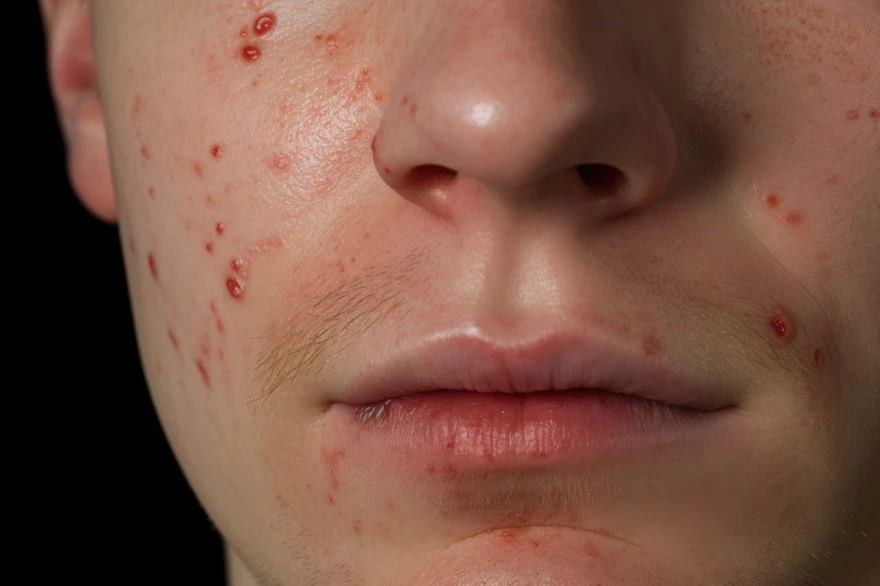Health Wellness
How Do You Know If it is Omicron: Are the Symptoms Any Different?
3540 Views
0

Amid the coronavirus disease surge, it is sometimes challenging for a layman – when faced with symptoms also resembling that of common cold or influenza – to be sure of whether they are infected with Omicron. With weekend curbs and night curfew being relaxed again, we should be still on track to curb the spread of the coronavirus. Whether Delta or Omicron, knowing about the symptoms and getting tested remains the key to fight against COVID.
Accolades to the Government of India’s successful vaccination drive, though the cases are restricted but we still find Omicron showing flashes of the Delta variant. With much under discussion with respect to the symptoms, severity and effect of the dose of vaccine for this new variant, the rising cases have stirred certain fear and panic among the people, owing to the uncertainty following it. With the strain being relatively new, and data being limited, looking at the number of cases, in the current scenario, expert’s advice to get vaccinated and follow the COVID protocols seriously.
Are the symptoms of Omicron any different from the previous variants?
Omicron – the new, highly transmissible variant of the SARS-CoV-2 coronavirus, has taken the world by storm, driving up daily COVID-19 cases in exceptional measures. Although there currently is a debate among public health professionals and infectious diseases experts on how “mild” the Omicron variant really is on humans, a number of medical researches have pointed to its feeble attack on the lungs that could make it less dangerous than the other, more fatal variants which came prior, such as Delta.
Doctors say, the symptoms caused by this Omicron virus, are more or less the same as of the other COVID variants. At large, the symptoms are common and include a sore throat, runny nose, tiredness and fatigue, and mild fever. A majority of people who have been affected by Covid-19 new Omicron variant, show mild symptoms that subside within a week. While the course is being monitored by the Government in connection with the Health department and renowned scientists and researchers, how easily the new variant spreads, what is the severity of this one, or are the current vaccines and other medications effective towards it, the data is still evolving.
While the causes may be similar, there are certain signs that require medical attention when it comes to being infected with Omicron. Patients should watch out for difficulty in breathing, dip in their oxygen level, Sp02 being less than 94% in room temperature, or constant pain and uneasiness in the chest accompanied by mental confusion etc. However, experts and doctors have reported that the percentage of serious and severe patients was comparatively less than the Delta variant, especially during the second wave, cases escalated very quickly, and that such a trend has not been observed till yet in Omicron. On the other hand, kids have been seen to experience high fever that may not go too soon with medicines and cough with Omicron infections.
"It is unknown whether the mild clinical syndromes or differing symptom descriptions are a result of existing immunity or altered clinical features associated with omicron infection," CDC said.
Make sure to get tested and isolated under a doctor’s supervision if you see symptoms. Book COVID RT-PCR here.
Is the treatment similar?
Based on the genetic makeup of Omicron, scientists believe, some treatments can remain effective, while others might not be so. Doctors at prestigious medical institutes of India, say that the treatment is mostly symptomatic. People with severe disease might require oxygen or ventilator support. In the new variant, while most people are shown to have mild to moderate symptoms, the ones who had to be hospitalised included cancer patients, low immunity or the ones suffering from chronic diseases. Most of the hospitalised ones currently are either elderly patients or ones with some existing comorbidities.
The vaccines we are putting currently can protect us against the severity and prevent hospitalizations leading to deaths. With the Omicron variant, however, we are seeing a breakthrough in those who have already fallen a victim to the previous variants. With uncertainty looming over the variants, its causes, and medications, it is best advised to get yourself fully vaccinated, as to reduce the severity and the chances of getting hospitalised.
Especially with the emergence of this new variant, the importance of vaccinations and boosters cannot be stressed enough.
Prevention being better than cure
In wake of this new variant, epidemiologists and virologists say that vaccination is the best way to tackle the pandemic situation. Doctors’ advice to continue wearing masks, following social distancing and hand hygiene. While with Omicron’s immune evasion capabilities, the chances of reinfection have increased, vaccines will largely protect everyone. In the coming months, with fluctuations in temperature, respiratory infections, coughs and cold are common. One might misjudge them to be weather related, or what could actually be in the form of Covid symptoms, so it is best to get tested, avoid cramped, closed and crowded places, wear proper medicated masks, practice hygienic measures and stay safe.
The RT-PCR tests continue to remain the most steadfast and accurate way of detecting a potential Covid-19 infection.
 Home Visit
Home Visit Upload
Upload














1701259759.webp)









 WhatsApp
WhatsApp